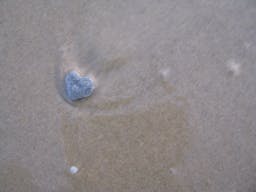Nine years since Rachel Corrie’s death – and little has changed in Gaza - by Noreen Sadik
Jan 21, 2015
Story
‘I can’t cool boiling waters in Russia. I can’t be Picasso. I can’t be Jesus. I can’t save the planet single-handedly. I can wash dishes.’
Rachel Corrie, September 2003, before going to Gaza
The death of Rachel Corrie in Rafah, in the Gaza Strip, nine years ago is not an unusual occurrence. The circumstances of her death are.
Rachel, a 23-year-old American pro-Palestinian peace activist, was volunteering for the International Solidarity Movement (ISM), when she was crushed by a US-made, Israeli-driven Caterpillar bulldozer, almost two months after arriving in Gaza.
Rachel’s parents filed a suit against the Israeli Ministry of Defense. All they asked for was a symbolic $1 for damages and legal expenses. Their search for accountability amounted to nothing when, contrary to witness reports, Judge Oded Gershon said the driver of the bulldozer did not see Rachel. He described Rachel’s death as a ‘regrettable accident’, and concluded that Israel was void of responsibility.
Nearly ten years have passed since Rachel died, and the verdict of ‘not guilty’ came out last month. So, you may ask, what is the point of writing this now? Well, over the years the world has seen many changes – political conflicts, environmental disasters, mass murders, economic disasters – but one thing that has not changed is life in Gaza.
Rather than experience the life endured by Palestinians through a television screen from the comfort of her home in the US, Rachel went to Gaza to protect Palestinian homes from being demolished.
According to the Israel Committee Against House Demolitions (ICAHD), since 1967, Israel has demolished over 25,000 homes in the West Bank and Gaza, resulting in over 160,000 internally displaced Palestinians. During Operation Cast Lead, Israel’s three-week war against Gaza in 2008-09, a staggering 6,268 houses and 186 greenhouses (and livelihoods) were destroyed.
In an email to her family, Rachel wrote in February 2003: ‘No amount of reading, attendance at conferences, documentary viewing and word of mouth could have prepared me for the reality of the situation here. You just can’t imagine it unless you see it – and even then you are always well aware that your experience of it is not at all the reality.’
Rachel described Rafah as a series of Israeli military watchtowers. She noted the destruction of city wells, home and greenhouse demolitions, checkpoints and lack of freedom of movement, rocket attacks, shooting of children, assassinations, which all ‘constitute a somewhat gradual – often hidden, but nevertheless massive – removal and destruction of the ability of a particular group of people to survive.’
She wrote: ‘I am in the midst of a genocide which I am also indirectly supporting, and for which my government is largely responsible.’
If Rachel were still here today, nine and half years later, and visited Gaza, she would see little change.
Gaza is populated by 1.6 million people, and that number is expected to rise to 2.13 million by 2020. The Palestinian Ministry of National Economy claims that the Israeli-imposed blockade has caused the lack of economic security that Gaza had reached prior to 2000. Imports have decreased, and exports are almost at a standstill, creating disaster for this small area that is dependent on trading goods and the unrestricted movement of workers.
Published in August this year, the United Nations report ‘Gaza in 2020 – a liveable place?’ lists Gaza’s woes: unemployment currently stands at 29 per cent, with women and young people most affected; 60 per cent of households are food insecure; 71,000 housing units and 250 schools are needed; only 10 per cent of the aquifer water is safe for drinking (and by 2016 it will be unusable) and by 2020 the damage could be irreversible; by 2020, the electricity supply will need to double to meet demand. Gaza’s future looks bleak.
Rachel’s thoughts turned to Gaza’s children: ‘They know that children in the US don’t usually have their parents shot and they know they sometimes get to see the ocean. But once you have seen the ocean and lived in a silent place, where water is taken for granted and not stolen in the night by bulldozers, and once you have spent an evening when you haven’t wondered if the walls of your home might suddenly fall inward waking you from your sleep, and once you’ve met people who have never lost anyone, once you have experienced the reality of a world that isn’t surrounded by murderous towers, tanks, armed ‘settlements’ and now a giant metal wall, I wonder if you can forgive the world for all the years of your childhood spent existing – just existing – in resistance to the constant stranglehold of the world’s fourth largest military – backed by the world’s only superpower – in its attempt to erase you from your home.’
Standing strong against inhumanity, Rachel became a number – one of many who died while selflessly searching for worldwide justice.
Isn’t it a paradox that the strong remain immune, and there is no accountability in the death of one who searches for justice for others?
Printed in New Internationalist Blog - Sett. 27, 2012
Please share the link below on FB if you like it...................thanks!!!
http://www.newint.org/blog/2012/09/27/gaza-nine-years-after-rachel/




